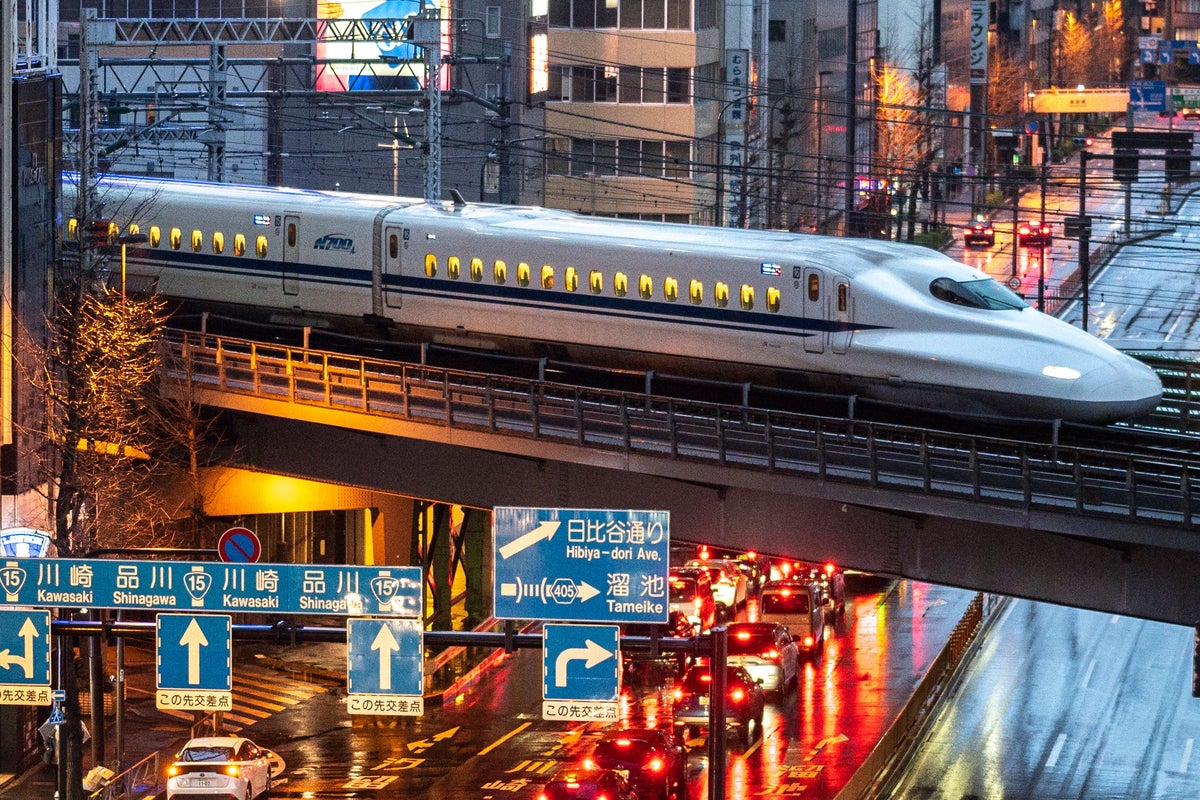The rise of home rental services such as Airbnb has been swift in changing the way we holiday – but there’s a potential dark side too.
Several stories about holidaymakers finding hidden cameras in rental properties have raised questions about the safety of staying in a stranger’s home in recent years.
In November 2023, Ian Timbrell, 41, found a camera tucked between two sofa cushions in the flat where he had booked a room via Airbnb.
Sharing the experience on Twitter/X, he posted a photo of himself pointing at the camera, alongside the caption: “OK, normal or weird? My Airbnb has a webcam watching the whole living room. Am I wrong to have unplugged it? Seems like a huge invasion of privacy to me!”
In October 2023, a newlywed couple from China honeymooning in Malaysia said their experience was disrupted after they allegedly discovered a hidden camera in their Airbnb homestay. The couple claimed the camera was hidden and pointed towards their bed.
Writing on Chinese social media platform Xiaohongshu under the name “Zhenmei Beauty,” the couple said the alleged camera was installed inside a wall power socket at the house in Kota Kinabalu, Sabah.
The detection of the apparent device prompted a police investigation, according to news outlet South China Morning Post, and has led to travel warnings as well as tips from experts on how to avoid being spied on while on holiday.
It follows a similar incident in July 2023, when a couple filed a $75,000 lawsuit against an Airbnb owner after they allegedly found hidden cameras recording them during their stay.
Texas couple Kayelee Gates and her fiancé Christian Capraro stayed in property owner Christoper Goisse’s vacation rental in Silver Springs, Maryland, in August 2022. The two were engaging in intimate activity in the bathroom before they allegedly located disguised cameras recording them. They had moved into the main room, “laid down on the bed, put a movie on and began to relax,” per the filing report. When Gates and Capraro’s looked up at the ceiling, the pair noticed there were two smoke detectors in the room: one directly above the bed and one in the corner.
As they moved closer to inspect the devices, they noticed what appeared to be cameras hidden in plain sight and were convinced they found another in the bathroom. They took one device in the bedroom down, at which point they alleged that they found a recording camera. Ms Gates said she felt “embarrassment, humiliation, disgrace and loss of dignity” after the incident.
So should we all be checking for cameras in our holiday rentals now? And, if so, how?
“You have to be vigilant to the likelihood of possibility,” Keith Roberts, a technician for Advanced Sweeping, a company that detects bugs for individuals and businesses, tells The Independent. “There are some bad people in the world.”
He says the number of hidden cameras that Advanced Sweeping finds has increased over the last few years.
“Cameras and eavesdropping devices are much more prevalent these days. There used to be a select market, and you had to know someone to get hold of one. They’re much easier to purchase now – anyone can buy them off the shelf from Amazon or eBay.”
Although Roberts suggests getting a professional company in to check if you want to be completely sure you’re not being recorded, there are some things a layman can do to check for cameras.
Look around you
“With cameras you should look for tiny holes, which is where the lens will be,” says Roberts. “Check common items: the back end of books, mirrors, light bulbs, house plants. Look in logical places; if someone was looking for information, they’d put a device in the lounge. If the person was a voyeur, they’d likely put a camera in the dressing down areas like the bathroom, shower room and bedroom.
“Check places that would give the best field of view and aren’t likely to be obstructed – often a camera would be high up, so whoever’s filming will gain as much as possible.”
Shine a torch
You don’t need to be Inspector Gadget to do a solid sweep for cameras – a humble torch, such as the one on your smartphone, will do the trick. “You can look for a lens with a torch and it’s 92 to 95 per cent accurate,” says Roberts. “Turn all the lights off and shine a torch slowly into every inch of the room – any camera lenses will reflect back the light.”
Check the mirror
Worried that the mirror might be two-way? There’s a very simple way to check. “The fingernail test is old but it still works,” says Roberts. “Put a fingernail up against the glass. In a real mirror, you can’t reach your finger in the reflection. But if you can touch your own finger in the reflection, that’s a problem. It’s a strong indication that it’s a two-way mirror.”
Invest in a detector
While companies like Advanced Sweeping spend hundreds of thousands of pounds on professional device detectors, it’s possible to buy cheaper versions. Roberts says, “There are professional lens hunters you can buy – the cheapest ones are around £40 to £50.” For real peace of mind, it could be worth investing in.
Scan for webcams
There are two main types of surveillance cameras – those that record onto an SD card and those that are connected to the internet. You can scan for webcams by connecting to the host’s wi-fi and using a free network scanner to find any internet-connected cameras. In response to Jason Scott’s most recent tale of camera spying, Dr Adam Glen tweeted: “Most hosts generally allow you access to their local network via wifi. Use @fingapp to scan the network for IP cameras. Not a full proof [sic] method of detection but can give an indication.”
If you do find something amiss (taking into account that the host might have legitimate security cameras outside the premises), unplug the internet router to ensure you’re not being watched.
Finally, if you do find what you believe is a hidden camera, don’t just complain to the company you booked through – report it to the police.
Source: independent.co.uk



